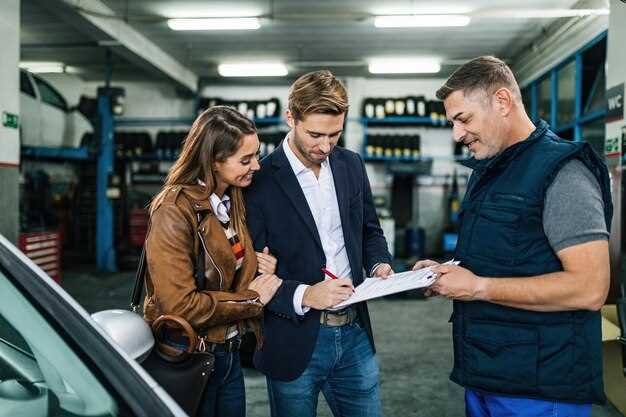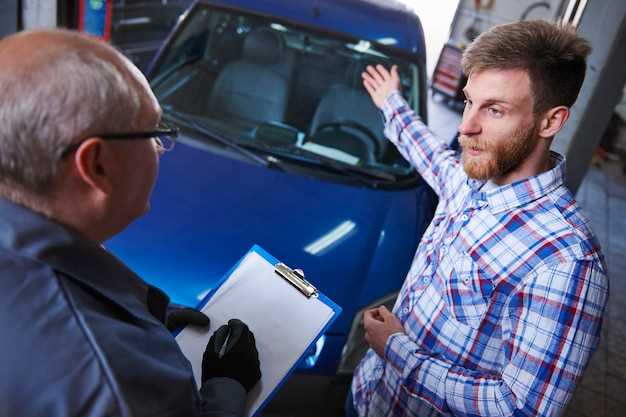
In the realm of automotive enthusiasts, classic cars hold a special place, not just as vehicles but as cherished collectibles. Their valuation is crucial for collectors, whether for insurance purposes, sales, or simply understanding the market. A thorough appraisal process is essential to determine the true worth of these iconic vehicles, as several factors can influence their value.
Collectors often face the challenge of evaluating classic cars due to the unique nature of each vehicle. Unlike modern cars, which depreciate over time, classic vehicles may appreciate significantly, depending on their rarity, condition, and historical significance. Understanding the various methods of valuation is imperative for any car enthusiast looking to invest in or sell these timeless treasures.
This article will delve into the different approaches used in classic car appraisal, examining industry standards, market trends, and the subjective elements that all play a role in the valuation process. By gaining insight into these methods, collectors can make informed decisions that enhance their collections and secure their investments.
Analyzing Market Trends and Historical Data for Collector Cars

The value of collector cars is influenced by various market trends and historical data, making appraisal a vital process for enthusiasts and investors. Analyzing these trends provides insights into the factors that drive demand and pricing in the collector car market.
Historical data plays a crucial role, as it can reveal patterns in pricing over time. Significant events, such as auctions, sales, and shifts in consumer preferences, often impact market dynamics. For instance, the resurgence of interest in classic cars due to nostalgia and social media exposure has led to rising values for well-preserved models from the 1960s and 1970s.
Another relevant factor is the rarity of specific models, which drives their desirability. Limited production runs and unique features can enhance the appeal of a collector car. Appraisers often look at sales records to determine how rarity correlates with price changes over time, allowing for more accurate valuations.
Market trends also include fluctuations due to economic conditions. Economic downturns may diminish disposable income, affecting spending on luxury items like collector cars. Conversely, periods of economic growth tend to boost the market, as collectors and investors are more willing to purchase high-value vehicles.
The influence of auctions cannot be overlooked, as they serve as a barometer for market conditions. Observing results from major auction houses helps assess current demand and pricing benchmarks for various models. Successful sales often propel other similar cars’ value upward, creating a ripple effect in the learning process for collectors and investors alike.
In conclusion, analyzing market trends and historical data is essential for accurate appraisal of collector cars. By understanding the interplay between rarity, consumer preferences, and economic influences, stakeholders can make informed decisions regarding purchases, sales, and investments in this niche market.
Key Factors Impacting the Appraisal Report of Vintage Vehicles

When determining the value of classic cars, several critical factors play a significant role in shaping the appraisal report. Understanding these elements can help collectors make informed decisions regarding their vintage vehicle investments.
Firstly, the condition of the vehicle is paramount. Appraisers assess various aspects such as the exterior, interior, engine, and undercarriage. A car in pristine condition with original parts will generally receive a higher valuation than one requiring extensive restoration.
Secondly, provenance greatly impacts the appraisal report. A well-documented history, including previous ownership and records of maintenance, can enhance a vehicle’s desirability. Cars with celebrity ownership or those that have participated in notable events may achieve premium valuations.
Market demand is another crucial element. The popularity of specific makes and models fluctuates over time, influenced by trends in car collecting. A surge in interest for a particular vintage car can lead to increased valuations in appraisal reports.
Moreover, rarity plays a significant role in valuation. Limited production runs or unique modifications can make certain vehicles more sought after, consequently driving up their appraised value.
Finally, external economic factors, such as the current state of the automotive market and overall economic conditions, can influence both demand and supply, thereby affecting the appraisal report. Appraisers must consider these dynamics when determining the fair market value of a classic car.
Comparative Valuation Techniques: How to Assess Classic Car Worth
When determining the value of a classic car, comparative valuation techniques play a crucial role. These methods involve analyzing similar vehicles to establish a fair market price for a specific car. The process begins with gathering data from various sources, including auction results, classified listings, and valuation reports. This information serves as a baseline for understanding the market trends and pricing dynamics for classic cars.
One common approach is the sales comparison method. This technique involves comparing the classic car in question with similar models that have recently sold. Factors such as make, model, year, condition, and mileage are taken into account. By identifying cars that share comparable characteristics, you can derive a more accurate appraisal of worth. The data collected should encompass various sales platforms, ensuring a comprehensive view of the current market.
Another technique involves the use of appraisal reports from certified professionals. These reports provide an authoritative assessment of a classic car’s value based on detailed inspections and market analysis. An expert appraiser will consider factors like originality, restoration quality, and rarity, which significantly influence a car’s market position. Engaging a talented appraiser can yield a thorough evaluation, making it easier to justify the valuation during negotiations or transactions.
Additionally, utilizing online valuation tools can be beneficial. Many websites offer instant valuation services based on extensive databases of sold classic cars. These tools can provide an initial estimate, but it is essential to compare the results against actual sales data from trusted sources to ensure accuracy. The online approach should supplement, not replace, in-depth research and professional appraisal.
Ultimately, understanding comparative valuation techniques is vital for assessing the worth of a classic car accurately. By analyzing data from multiple sources and utilizing expert insights, buyers and sellers can engage in informed discussions, leading to successful transactions and fair market pricing.




